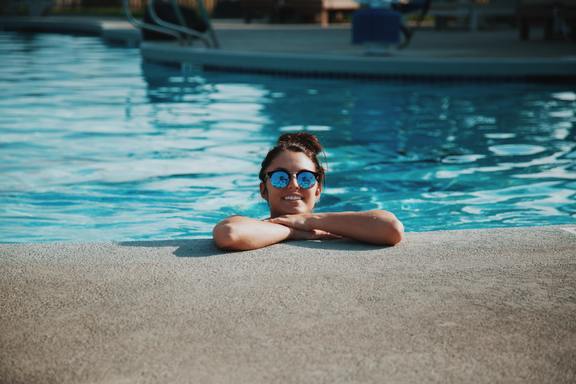
If you are thinking about installing a swimming pool in your backyard, you will need to get a swimming pool heater to keep the water at a comfortable temperature for your swimming pool. But, there are many different options available when it comes to swimming pool heaters. You should make sure you select the right one for your swimming pool heat pump. Here are a few tips to help you make the right choice:
Efficiency: You will want to compare the energy efficiency of the pool heater to the other types of heaters you are considering. An inverter pool heat pump Melbourne with high efficiency is better for energy consumption during operation than other types of heat pumps. The inverter pool heat pumps have the ability to run both at full capacity and in energy-saving mode, which can reduce energy consumption and improve your overall electricity bill. The higher the efficiency rating of your pool heater, the less energy it will consume, which means a greener, more environmentally friendly heating system.
Quality: The quality of your pool heat pump may be influenced by the manufacturer, as well as the quality of the materials used to manufacture the pool gas heater. Many of these manufacturers use low-grade metals or man-made plastics in their heat exchangers and heat pumps. A quality manufacturer will stand behind the products it creates with a manufacturer warranty. You should also consider the cost to replace the pool heating Sydney if it breaks down within a reasonable amount of time. In general, the more expensive the heater, the better quality it will be.
Number of Enclosures: The number of enclosures to which a swimming pool heat pump pool pumps the water will determine its size. Heaters will need an enclosure to house the water heater and the air conditioning system. For larger pools, you can have one enclosure, two enclosures, or several enclosures. If you want to heat multiple swimming pools at the same time, you will need to use more than one type of enclosure.
Size: The size of your pool will affect the type of swimming pool heat pump you need to purchase. The inverter electric pool heat pump has the ability to work on a larger volume of water, so it will be a good choice for pools that have more area to heat. The gas heater is good for smaller swimming pools that only need minimal heating. If you are installing an air conditioning system on your swimming pool, look into the sizes of both the air conditioner and the swimming pool Solar heating for pools Brisbane you will need to cover the space.
Type: Some heatwave superquiet heat pumps are capable of working silently. They also have fewer problems than other types of swimming pool heating Adelaide and have fewer parts to lubricate. They are also recommended for use in residential swimming pools because they require less maintenance and are quieter. A quieter pump will also help you conserve energy.
Location: The best place for your electric pool heat pump is where it will be installed and will receive direct sunlight throughout the day. If your pool receives little sunlight or receives intense light, you should consider a pool heat pump that is installed in a darker area of your home. Smaller heat pumps can also be installed in a pool that receives full sunlight throughout the day if this would be beneficial for you. This may cause a larger heat pump cost to occur, but it could save you money on your electric bill. It will also mean that you have more areas in your yard that receive direct sunlight throughout the day. If your pool is located near an exterior wall, you will have to install a pool heat system that can also withstand strong winds.
Type of Fuel: Gas and electric are commonly used to power heat pumps, but there are some benefits to using a natural gas heat pump instead. Natural gas pumps are usually installed closer to the pool and are not as likely to experience problems associated with an out of control evaporator. Electric and gas pumps can also operate better under higher temperatures. This is because they require less electricity to run than air-source pumps. If you plan on installing your pool’s pump while the ground is still warming up, it is advisable to install a gas or electric heater in the ground first, until you can safely install the heat pump.